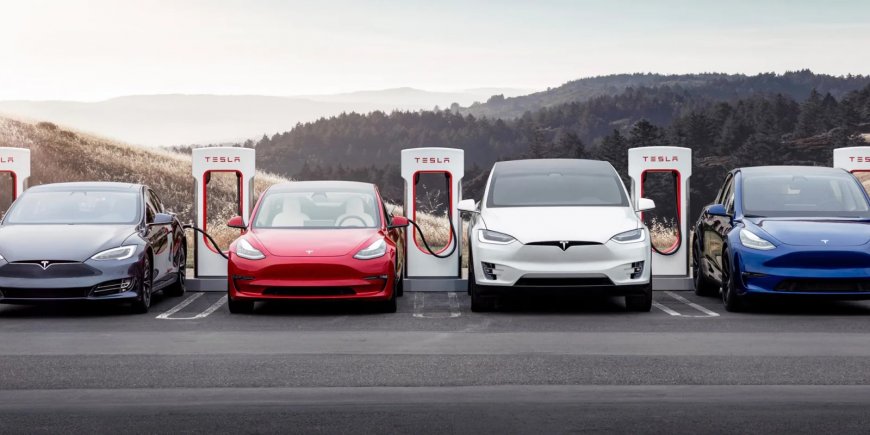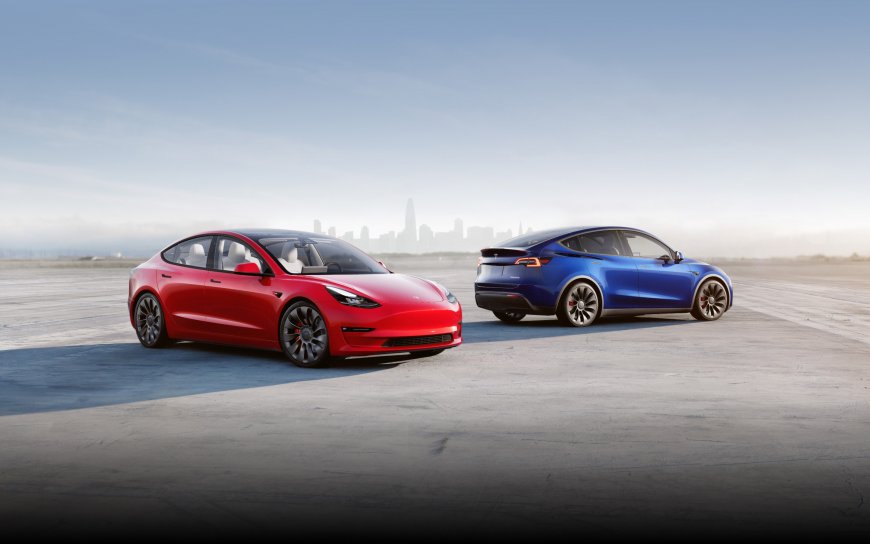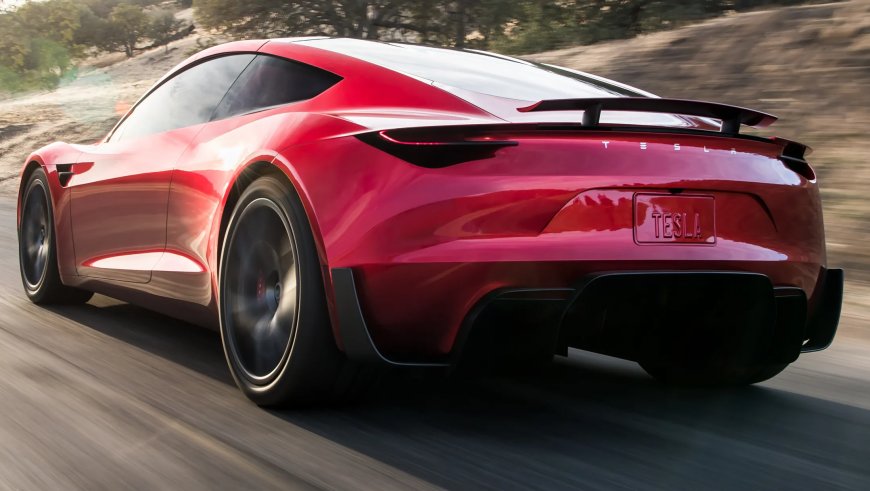Is Buying a Tesla Car Worth It? Exploring the Environmental Impact, Performance, and Cost
Looking to buy a Tesla but unsure if it's worth the investment? explores the environmental impact, performance, and cost of owning a Tesla car.
Whether a Tesla car is worth it or not depends on a number of factors, including your individual circumstances and priorities. Here are some points to consider:
-
Environmental Impact:
Tesla electric cars are generally considered to have a positive environmental impact compared to traditional gasoline-powered cars. Here are some of the key ways in which Tesla's electric cars have an environmental advantage:
-
Lower Emissions: Tesla's electric cars produce zero tailpipe emissions, which means they do not release harmful pollutants into the air. This helps to reduce air pollution, which can have a significant impact on public health.
-
Reduced Carbon Footprint: Tesla's electric cars produce significantly lower greenhouse gas emissions than gasoline-powered cars. The carbon footprint of an electric car depends on the source of the electricity used to charge it. In many regions, the electricity used to charge a Tesla comes from renewable sources like solar and wind power, which further reduces its carbon footprint.
-
Energy Efficiency: Tesla's electric cars are more energy-efficient than traditional gasoline-powered cars. Electric cars convert up to 60% of the energy stored in the battery into forward motion, while gasoline cars convert only about 20% of the energy stored in gasoline into forward motion. This means that electric cars require less energy to travel the same distance as gasoline cars.
-
Innovation in Sustainable Energy: Tesla is not just an electric car manufacturer, but also a company that is driving innovation in sustainable energy. Tesla's solar panels and energy storage products, such as the Powerwall and Powerpack, help to reduce reliance on fossil fuels and increase the use of renewable energy.
While Tesla's electric cars are not without environmental impact, such as the production of the batteries and the energy required for charging, they are generally considered to have a positive impact on the environment compared to gasoline-powered cars.

- Performance:
Tesla cars are known for their exceptional performance, which is one of the key reasons why they have become popular among car enthusiasts and eco-conscious consumers alike. Here are some of the factors that contribute to Tesla's performance:
-
Acceleration: Tesla's electric motors produce instant torque, which means that they can accelerate from a standstill more quickly than many traditional gasoline-powered cars. For example, the Tesla Model S can go from 0 to 60 mph in just 2.4 seconds, making it one of the fastest production cars in the world.
-
Handling: Tesla's electric cars are designed to have a low center of gravity, which improves handling and makes them feel more responsive on the road. The cars are also equipped with advanced suspension systems and brakes that help to ensure a smooth and controlled ride.
-
Range: Tesla's electric cars are known for their long range, meaning that they can travel for a longer distance on a single charge than many other electric cars on the market. This is thanks to Tesla's advanced battery technology, which provides high energy density and efficient use of power.
-
Autopilot: Tesla's Autopilot system is a driver assistance system that uses sensors and cameras to help the car navigate and avoid obstacles. This system is designed to improve safety and make driving easier, and it has received high marks for its performance in independent safety tests.
Overall, Tesla's performance is a key factor in the company's success. The combination of high acceleration, responsive handling, long-range, and advanced safety features has made Tesla a leader in the electric car market and a top choice for drivers who want a high-performance vehicle with low environmental impact.
-
Range:
Tesla offers a range of electric cars with varying ranges depending on the model and configuration. Here are the current ranges for Tesla's four main models:
-
Tesla Model S: The Model S has a range of up to 396 miles on a single charge. This range applies to the Long Range Plus model with a 100 kWh battery pack.
-
Tesla Model 3: The Model 3 has a range of up to 358 miles on a single charge. This range applies to the Long Range model with a 75 kWh battery pack.
-
Tesla Model X: The Model X has a range of up to 333 miles on a single charge. This range applies to the Long Range Plus model with a 100 kWh battery pack.
-
Tesla Model Y: The Model Y has a range of up to 330 miles on a single charge. This range applies to the Long Range model with a 75 kWh battery pack.
It's worth noting that the range of a Tesla car can vary based on several factors, including driving style, weather conditions, and the use of accessories like air conditioning. In addition, the range of a Tesla car can decrease over time as the battery degrades, although the company offers a warranty on its batteries to help protect against this.
Tesla has been working to improve the range of its electric cars through advances in battery technology and efficiency improvements. As the technology continues to evolve, it's likely that we'll see even longer ranges for Tesla's electric cars in the future. (ranges according to February 2023)
-
-
Cost:
Tesla electric cars are generally more expensive than traditional gasoline-powered cars, but they offer several advantages that can make them a valuable investment for some consumers. Here's a brief overview of Tesla's cost and value compared to other cars on the market:
-
Higher upfront cost: Tesla's electric cars are generally more expensive than similar gasoline-powered cars. For example, the base price of a Tesla Model 3 is around $40,000, while the base price of a comparable gasoline-powered car might be closer to $20,000.
-
Lower operating costs: Despite the higher upfront cost, Tesla's electric cars can be less expensive to operate over time. This is because electric cars are more energy-efficient than gasoline-powered cars, and they generally require less maintenance.
-
Environmental benefits: Tesla's electric cars have a lower carbon footprint than gasoline-powered cars, which can be an important factor for eco-conscious consumers.
-
Performance: Tesla's electric cars are known for their exceptional performance, including fast acceleration and responsive handling. This can make them a valuable investment for car enthusiasts who are looking for a high-performance vehicle.
-
Innovative technology: Tesla's electric cars are equipped with advanced technology, including features like Autopilot and over-the-air software updates. This can make them a valuable investment for tech-savvy consumers who want a car that is at the cutting edge of automotive innovation.
Overall, whether or not a Tesla is a valuable investment depends on the individual needs and priorities of the consumer. While they may be more expensive upfront, their lower operating costs, environmental benefits, exceptional performance, and innovative technology can make them a valuable investment for some consumers.
-

-
Charging Infrastructure:
Tesla has developed a comprehensive charging network to support its electric cars, which is a key factor in the company's success. Here's an overview of Tesla's charging network:
-
Superchargers: Tesla's Supercharger network is a series of fast-charging stations that are strategically located along major highways and in urban areas. These stations can charge a Tesla electric car to 80% capacity in as little as 20 minutes, which is significantly faster than most other charging options. Tesla's Supercharger network currently has over 25,000 chargers at more than 2,700 stations worldwide.
-
Destination chargers: In addition to the Supercharger network, Tesla has also partnered with hotels, restaurants, and other businesses to install destination chargers. These chargers are slower than Superchargers, but they are still faster than many other charging options and can be used to "top off" a car's battery while the driver is stopped for a meal or overnight stay.
-
Home charging: Tesla also offers home charging options, including the Tesla Wall Connector and the Mobile Connector. These devices allow Tesla owners to charge their cars at home using a 240-volt outlet, which can provide a full charge overnight.
-
Charging app: Tesla has also developed a charging app that allows drivers to locate charging stations, check the availability of Superchargers, and monitor the progress of their charging sessions from their mobile devices.
Overall, Tesla's charging network is a key advantage of owning a Tesla electric car. The Supercharger network provides fast and convenient charging options for long-distance travel, while the home charging options and destination chargers provide additional flexibility and convenience for daily use. This comprehensive charging network has helped to make Tesla's electric cars a more practical and viable option for drivers, and it is one of the company's key competitive advantages in the electric car market.
Overall, Buying a Tesla car is worth it. First and foremost, Tesla's electric cars are environmentally friendly, producing zero emissions and significantly reducing your carbon footprint. Additionally, Tesla's electric cars are cheaper to operate and maintain than gasoline-powered cars, saving you money over the long term. Tesla's advanced technology, including features like Autopilot, is also a major selling point, offering a unique and innovative driving experience. Finally, Tesla's comprehensive charging network and exceptional performance make it a practical and reliable option for long-distance travel. Overall, buying a Tesla car is a smart investment for eco-conscious consumers who value advanced technology, exceptional performance, and long-term cost savings.
-


